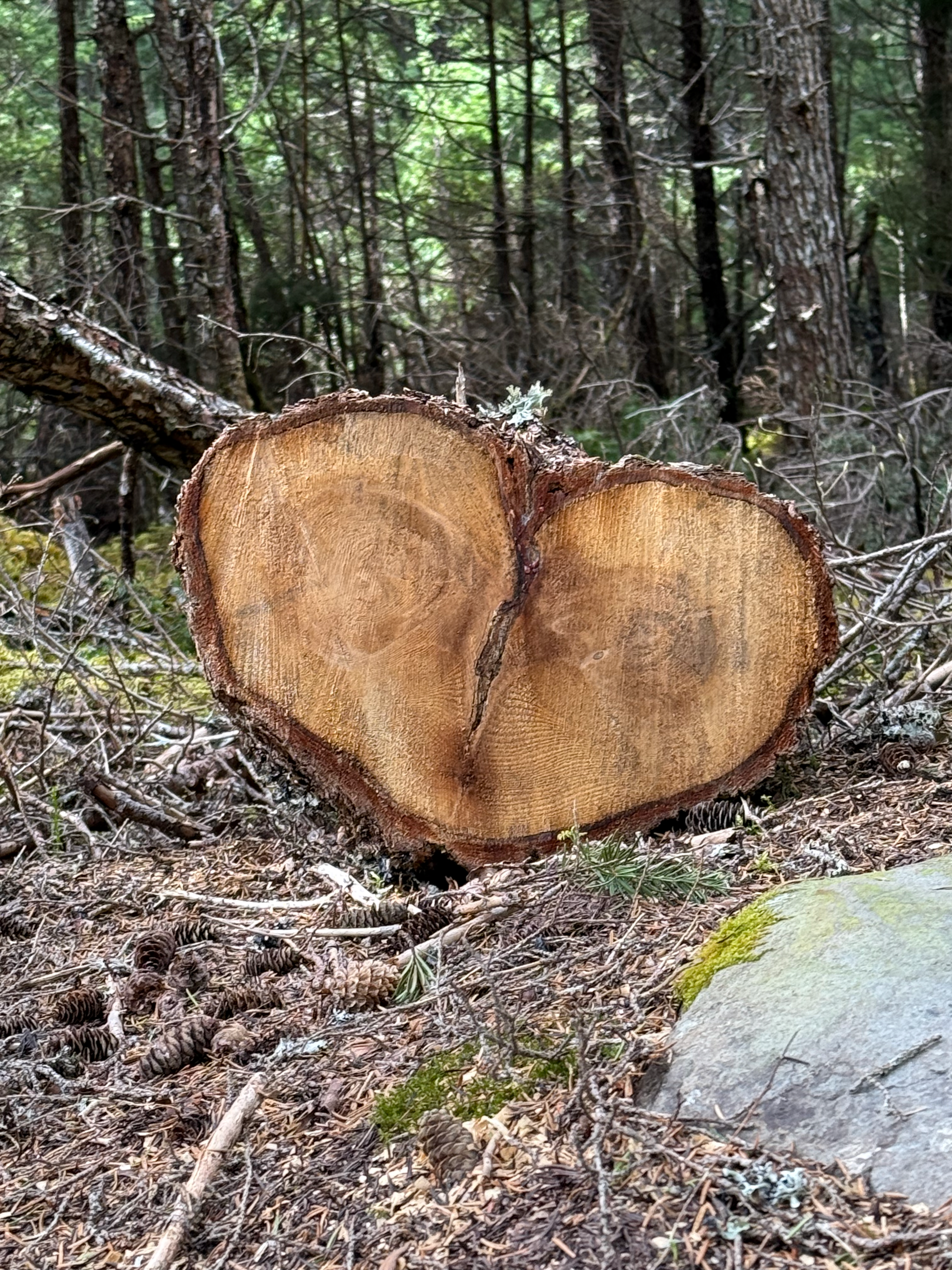What Does it Mean to Love the Land?

Each week, I provide a gentle turning practice to help us shift our perspective. You may find it helpful to have a journal at hand, but it’s not required. I hope these practices of body and heart bring you peace and connection in the middle of whatever storm is blowing around you at the moment. Today's newsletter is the first in a series dedicating to loving the land you're with.
In last week’s gentle turning practice, I asked myself (and prompted you to ask yourself), “Instead of escaping my home to refresh my body and soul, what would it take to love–and be loved by–the land I’m with?”
That is not a question I have a ready answer for, especially in this particular place and time. A few years ago, when I was first waking up to my deep, spiritual connection with the natural world, I was devastated by the death of almost all of the trees on the trail by my house. I had no idea what to do. No one else seemed to care much. I felt the loss acutely. I was also afraid of fires—the woods had become a tinder box. I spent weeks trying to get the attention of my municipal government to do something about it. Eventually, after some emails with my state legislator, the municipality sent a crew to clear out the dead trees. I watched them spend the rest of the summer chopping down my friends and grinding them into wood chips.
It is a problem that has only gotten worse. I spend most of July driving back and forth to my boyfriend’s family’s fishing cabin, and every time I make the journey, I see more dead spruce. Bark beetles are a serious problem in Alaska, made worse by warming temperatures that keep the population of beetles alive through the milder winters. No one really knows what to do about it. We just watch and hope that when there is a fire, we are able to prevent loss of human life and property. I feel incredibly helpless.
But “what can I do to reverse climate change” isn’t the question I’m asking. Or even, “can I prevent beetle kill?” I know those are questions I don’t have the expertise or ability to answer. Those aren’t one-person questions, either. They are questions for communities, for entire cultures. I’m asking myself—and you—how to love the land because I know that, if we as a dominant culture loved the land, this wouldn’t be a problem to begin with. We can come up with solutions, but we will only have means to implement them if our culture becomes rooted in love for the land.
I also know from my human relationships that love isn’t always about problem-solving. If someone I love is sick, I may not be the person with the knowledge to heal them. But I am the person who will help them get the care they need and keep them company during the healing process. Love is vital. I say that in a literal sense—love is what connects living beings to one another. It is the life we share when we swap air with the plants around us, when our molecules bump into one another and become part of each other.
So I’m going to ask the same question again this week as last week, a question I am pondering with you, allowing it to weave itself into my days and my awareness. My grandfather used to say that you never step in the same river twice. The same is true for important questions: they never mean the same thing twice:
What would it take to love–and be loved by–the land I’m with?
I call myself an “everyday mystic” because I’ve found that our dominant, human-centered culture is so pervasive, it can take the perspective of a mystic to pierce it. I looked for meaning around me using a spiritual perspective, and I found deeper connection in a hidden world that is more natural than it is supernatural. The purpose so many of us long for is all around us if we choose to look for it. All it takes is a willingness to step outside of the default American perspective, one moment at a time.
Are you enjoying what you're reading? Please share with your friends! And remember: this is a reader supported publication. All content is free, but a paid subscription helps keep the lights on. Consider supporting content you love!
(Please note that I am not a non-profit organization. These gifts are not tax-deductible.)
